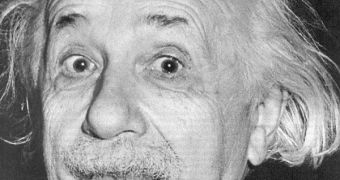What does "greatest" mean?
Probably the best definition would be the "most defining of who we are today", something that dramatically changed the life of all humanity, and I will be referring only to inventions and not to discoveries such as the fire or the wheel.
10 - The Telescope - It proved for the first time that the Earth is nothing more than a round piece of rock in the giant pond of space and not the center of anything, much less the universe. many people didn't agree then, and they still don't agree now.
9 - The Computer - Many people have the deepest, richest, most diverse, and rewarding relationship with their computer. It plays games with them, tells them jokes, plays music to them, it does the taxes, and sometimes it' even used to work.
8 - The Television - Wherever a TV is on, it draws attention like no other piece of furniture. It can be source of amusement, knowledge, or, if misused, of violence and almost self-inflicted psychiatric disorders
7 - The Automobile - Once cars were invented, roads were improved. Once roads were improved, cities developed suburbs and expanded, because people could now live in the country, yet work in the city. Furthermore, as cars grew popular, the oil industry boomed. Oil became a key to power and wealth, and one of the major factors for political and economic conflicts in many parts of the world.
6 - The Use of Electricity - Electricity was never really invented. It existed all along, but humans only invented the means of generating this force and distributing it to individual buildings. The invention was made by Edison, who siglehandedly turned electricity into a commercial application and his Pearl Street station was the world's first electric power station. Now, anyone throughout most of the world can tap into the grid to power everything from light bulbs to computers. Actually, the human beings could be considered as feeding on electricity, besides organic products.
5 - The Telephone - many people imagined a form of telephony, even long before it was actually invented. This wonder of modern technology allows anyone to talk to anyone anywhere at any given moment, even without physically seing the person, or even knowing ho he/she is.
4 - Antibiotics - Most people actually died of infectious diseases, a few centuries ago. The plague that broke out in 1347, killed almost half of Europe's population in nearly two years. When diseases such as smallpox reached North America, they reduced the indigenous population by about 90 percent within a century. As late as 1800, the leading cause of death in the western hemisphere was tuberculosis. Almost no one ever died of old age back in the day, probably the main reason why elders were revered.
3 - The Printing Press - This may seem unimportant, but it truly is. Gutenberg's press, with its movable type, started the idea of publishing oral knowledge or multiplying exissting, hand-written books. This may actually be the reason why so many people turned their backs on Christianity, putting a Bible in the hands of anybody who wanted one. The Church no longer possessed the absolute truth, and thus the independently thinking individual emerged as the key unit of society. In the longer term, publishing universalized literacy.
2 - The Mechanical Clock - Time was actually a measure of events before the timepiece was invented, the main one being the Sun crossing the sky. No universal time actually existed, only a local one. That meant that once you agreed to meet someone at sunset, you had to clearly state where that was, because the Sun is always setting somewhere. And of course, what clocks made possible, they soon made necessary. In a clock-driven world, most of us are now either "on time," "ahead of schedule," or "running late."
1 - The Toilet - You can half all you can, but then try this experiment. Try to imagine New York, Paris or Tokyo without toilets. It's impossible. The modern city were made possible by man's ability to bring clean water in densely populated spaces and to remove the waste. Without toilets and plumbing any tall building would be impossible. Remove apartment buildings, office towers, and dense city centers from your picture of the world and you have to change the whole rest of your picture too, because the implications keep rippling.
Of course, this top isn't an absolute one, and anyone could argue its classification, but, in fact, it all comes down to how important is this or that invention to a specific individual, and how it influences his way of perceiving the world.

 14 DAY TRIAL //
14 DAY TRIAL //